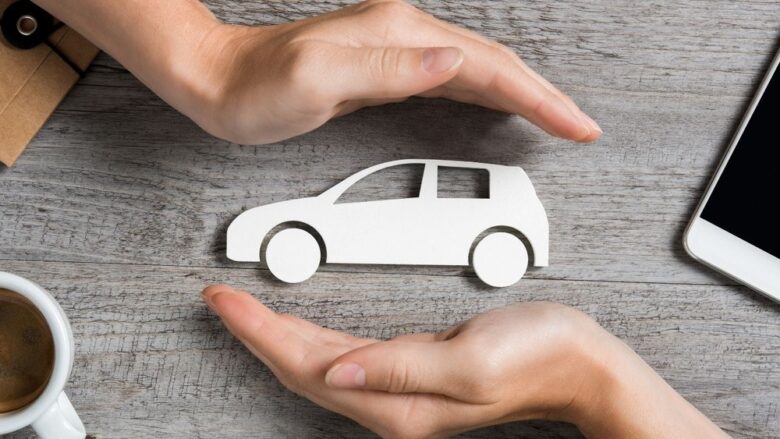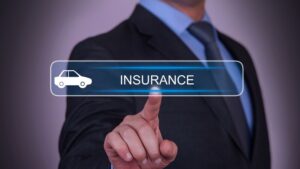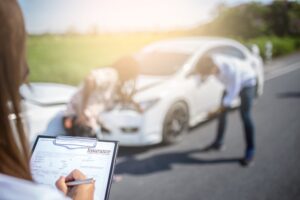Having car insurance is an important part of owning a car. It keeps your finances safe in case of theft, collision or other damage. But there are so many types of car insurance that it can be difficult to know which one you need. This article discusses the different types of car insurance and helps you choose the car insurance that suits you best.
Liability Insurance:
In most places, you must have liability insurance for your car because the law says so. This reimburses the damage you cause to others in the event of an accident. This covers costs such as medical bills, property damage and attorney fees. Liability insurance consists of two important components: liability for bodily injury and liability for property damage. Personal injury liability pays for the injured party’s medical bills and lost wages. Property damage liability covers the costs of repairing or replacing damaged property.
Collision Coverage:
Regardless of who is at fault, collision coverage will pay for the repair or replacement of your car if it is damaged in an accident. This policy is even more important if you have a newer or more expensive car, as repairs can cost a lot of money. Most collision insurance policies have a deductible. This is the amount you must pay out of pocket before the insurance starts paying out.
Comprehensive Protection Insurance:
Comprehensive insurance covers damage to your car that isn’t the result of an accident. This includes theft, vandalism, natural disasters and other non-intentional damage. You must pay the deductible for the accident and comprehensive insurance. This type of coverage is ideal for those who want to protect their car in more ways than just a collision.
Personal Injury Protection (PIP):
The name “no-fault” insurance can also be used for personal injury protection (PIP). It covers you and your passenger’s medical bills, lost wages, and other costs related to the accident, regardless of who was at fault. Not all states require PIP, but some do. It helps pay hospital bills immediately and helps reduce accident costs.
Coverage for Uninsured or Underinsured Motorists:
Uninsured/underinsured motorist coverage protects you if you are involved in an accident with a driver who does not have adequate insurance or no insurance at all. This coverage can help pay for hospital bills, lost wages, and other costs related to the accident. Having this coverage is important because it can prevent you from suffering damage if the other vehicle does not have adequate coverage.
Gap Insurance:
Gap insurance is available to people who buy or lease a car. It pays the difference between the amount you still owe on your loan or lease and the cash value of your car (if added). This is especially useful if your car loses value quickly or if your loan amount is high. Gap insurance ensures that you are not left with large costs if your car is totaled.
Coverage of Medical Costs:
Medical insurance (or MedPay) pays for you and your passengers’ medical expenses after an accident, regardless of who is responsible. This may include hospital visits, surgeries, and other medical care. MedPay is similar to PIP, but typically has less coverage and coverage. In addition to health insurance, it can also be helpful to cover medical costs related to accidents.
Rental Reimbursement Insurance:
If you are involved in an accident, rental reimbursement insurance will pay for the cost of your rental car while it is being repaired. This type of coverage can be useful for people who rely on their car for daily tasks and have no other way to get around. Most rental reimbursement plans have a daily limit and a maximum amount paid.
Roadside Assistance:
Roadside assistance is there to help you if your car breaks down or if you encounter any other type of traffic accident. This includes pulling on the battery, starting the battery, changing a flat tire, and delivering gasoline. As a coverage option, roadside assistance is very useful and convenient, especially for people who travel long distances or often travel in remote areas.
How Do You Choose the Best Car Insurance?
Getting the right car insurance depends on many factors, such as your state’s requirements, your budget, and your own personal tastes. Most states require drivers to have liability insurance, but additional coverages such as collision coverage, comprehensive coverage, and uninsured/underinsured motorist coverage can provide you with additional peace of mind and safety. When choosing the right type of car insurance for you, you need to consider the value of your car, how you drive and your budget.
FAQs:
1. What is the difference between accident insurance and liability insurance?
Liability insurance covers the injuries you cause to others in an accident, such as their medical bills and property damage. On the other hand, if your own car is damaged in a collision, collision coverage will pay for the repair or replacement of your own car, even if someone else is at fault.
2. If I already have collision coverage, do I still need comprehensive coverage?
Comprehensive insurance covers damage to your car that is not caused by an accident, such as damage caused by theft, crime or a natural disaster. If you want complete protection against these types of accidents, you will need to purchase both comprehensive and collision coverage.
3. How Much Personal Injury Protection (PIP) Do I Need in Each State?
You are not required to have personal injury protection (PIP) in all states. Some states require this, but others do not. PIP covers your medical bills, lost wages, and the expenses of those in your car, regardless of who was at fault in the accident.
4. How can uninsured or underinsured motorist coverage help me?
Uninsured/underinsured motorist coverage protects you if you are involved in an accident with a driver who does not have adequate insurance or no insurance at all. It helps pay for medical bills, lost wages, and other expenses, so you don’t have to worry about how other motorist’s lack of coverage will impact your finances.
5. What is gap insurance?
Gap insurance pays the difference between the amount you still owe on your car loan or lease car and what the car is now worth if it breaks down in an accident. This is especially useful if your car loses value quickly or if you have a large loan. It prevents you from being saddled with enormous debts after a total loss.



